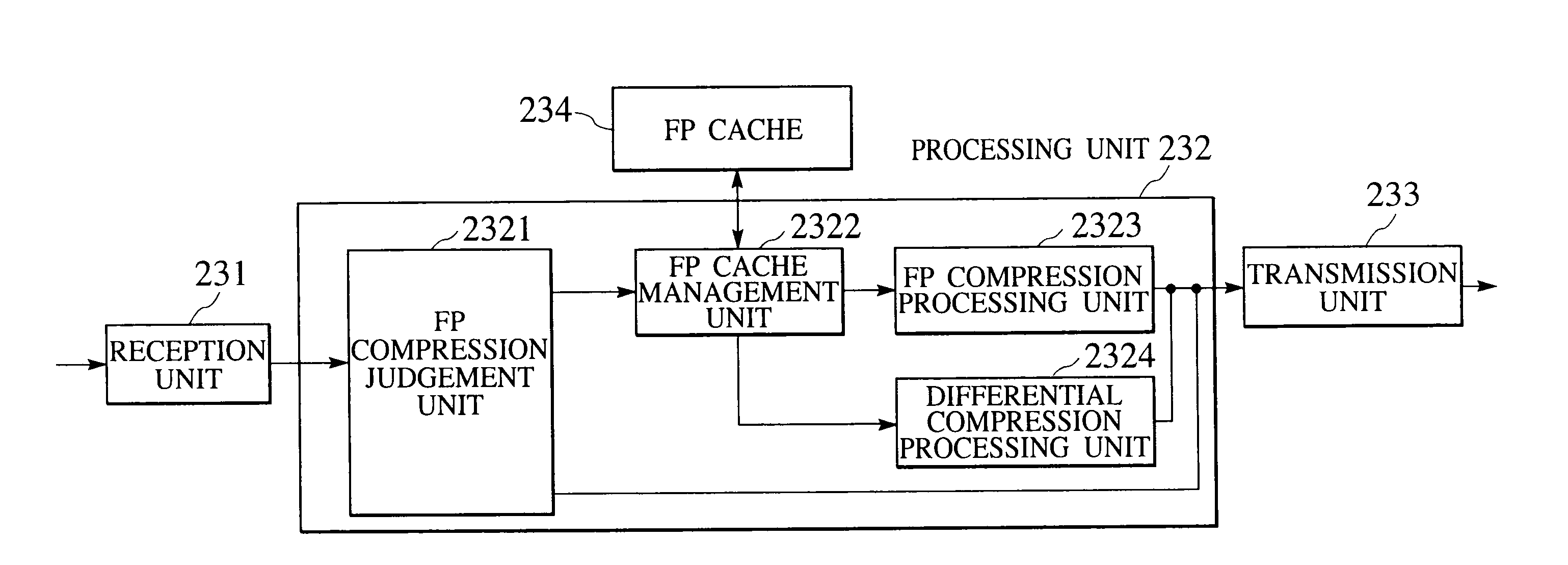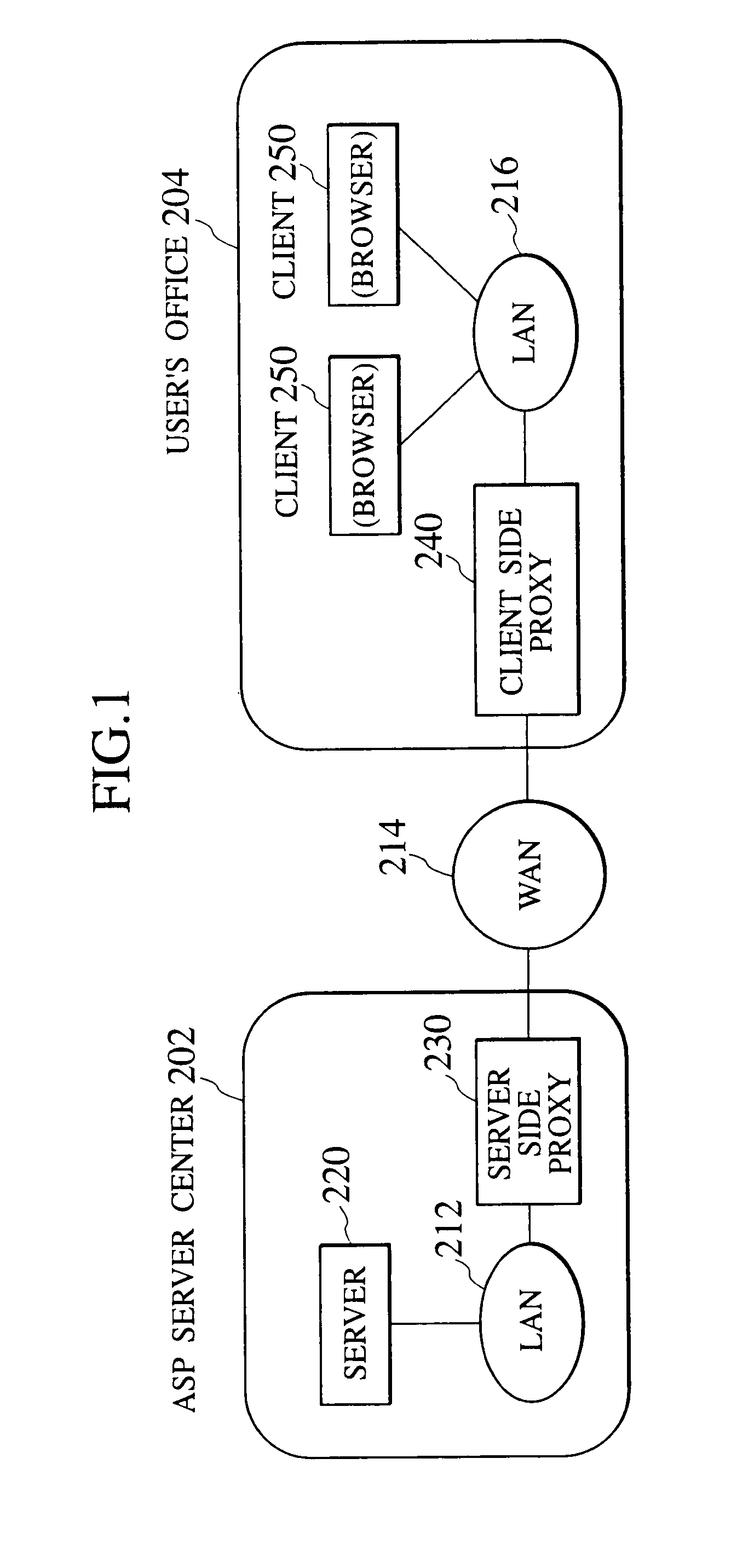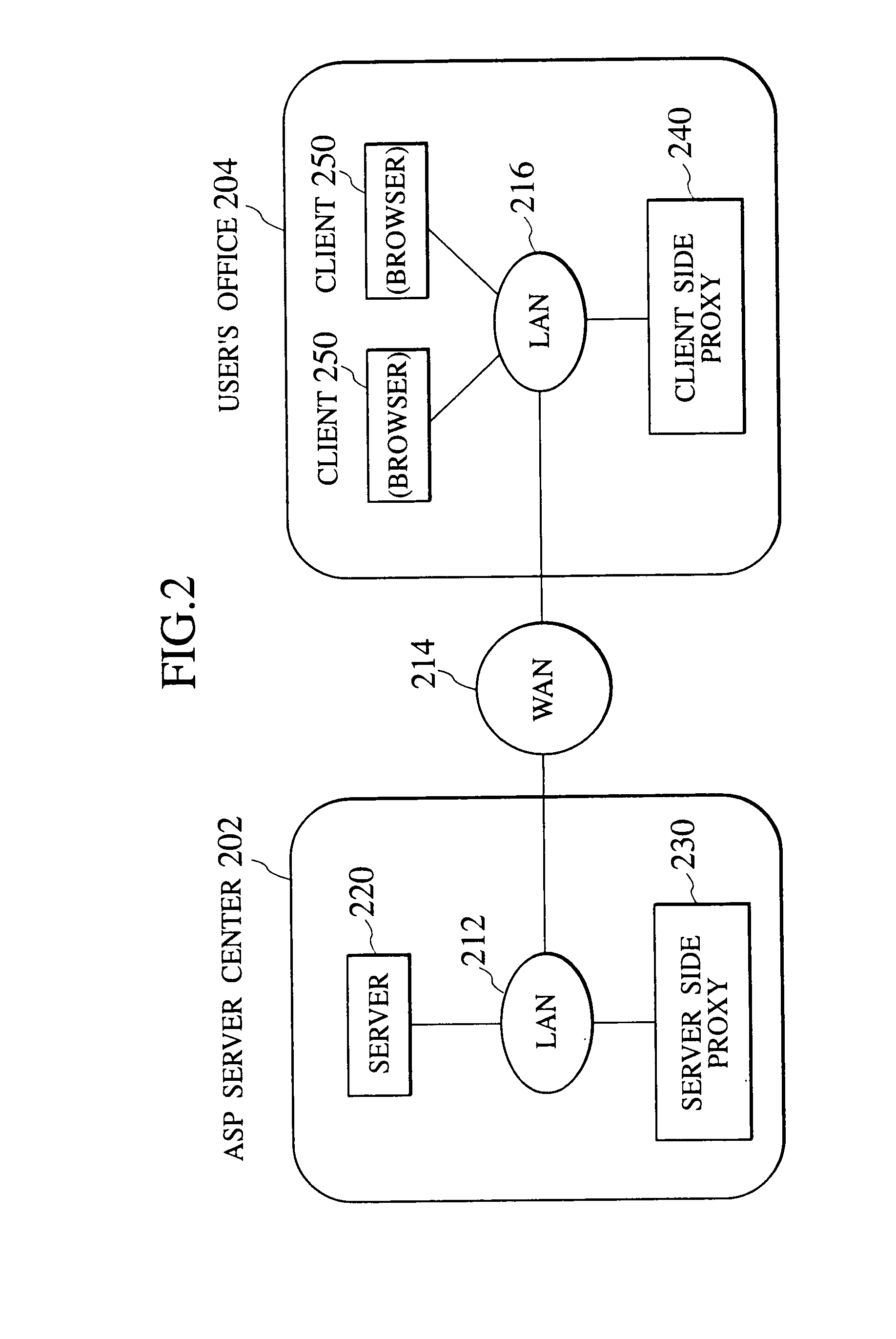Data transfer scheme using caching and differential compression techniques for reducing network load
a data transfer and differential compression technology, applied in the field of data transfer schemes, can solve the problems of increasing the amount of data that cannot be handled by the conventional caching technique, the ineffective use of the caching technique alone, and the inability to reduce the network load. the effect of reducing the network load of the network
- Summary
- Abstract
- Description
- Claims
- Application Information
AI Technical Summary
Benefits of technology
Problems solved by technology
Method used
Image
Examples
Embodiment Construction
[0084]Referring now to FIG. 1 to FIG. 52, one embodiment of the data transfer scheme according to the present invention will be described in detail.
[0085]In the following, an exemplary case in which a WAN is the Internet, clients are connected to a user's office LAN, and the HTTP protocol is used will be described, but the present invention is also applicable to the cases where the WAN is other than the Internet, the cases where the clients are located at LAN other than the user's office LAN such as a LAN inside a home, and the cases where the protocol other than the HTTP protocol is to be used.
[0086]FIG. 38 shows an exemplary basic configuration of a computer network system to which the present invention is applied. In this exemplary configuration, a local area network (LAN) 212 inside an ASP server center 202 and a local area network (LAN) 216 inside a user's office 204 are connected through a wide area network (WAN) 214 such as the Internet or dedicated line, such that a server 2...
PUM
 Login to View More
Login to View More Abstract
Description
Claims
Application Information
 Login to View More
Login to View More - R&D
- Intellectual Property
- Life Sciences
- Materials
- Tech Scout
- Unparalleled Data Quality
- Higher Quality Content
- 60% Fewer Hallucinations
Browse by: Latest US Patents, China's latest patents, Technical Efficacy Thesaurus, Application Domain, Technology Topic, Popular Technical Reports.
© 2025 PatSnap. All rights reserved.Legal|Privacy policy|Modern Slavery Act Transparency Statement|Sitemap|About US| Contact US: help@patsnap.com



